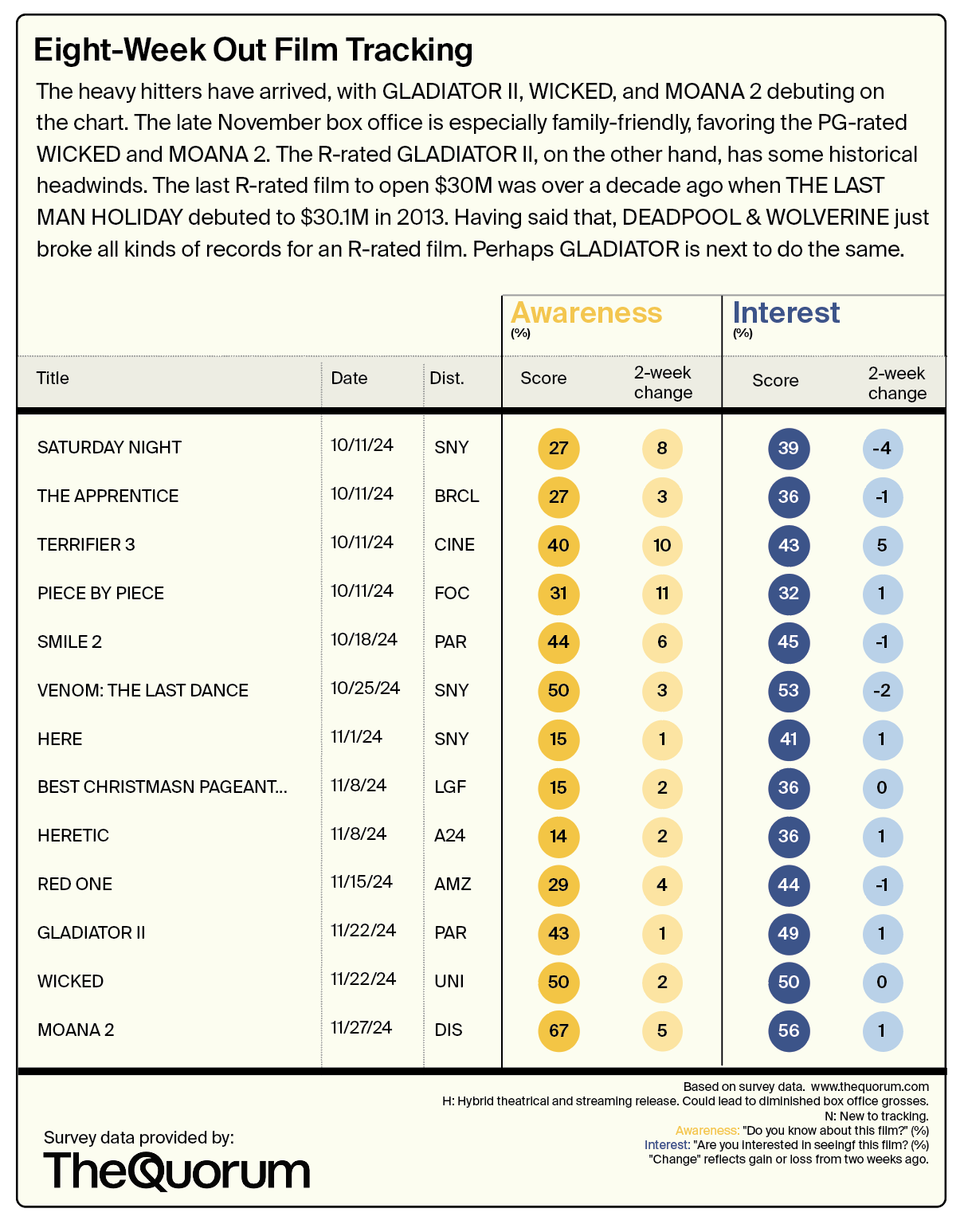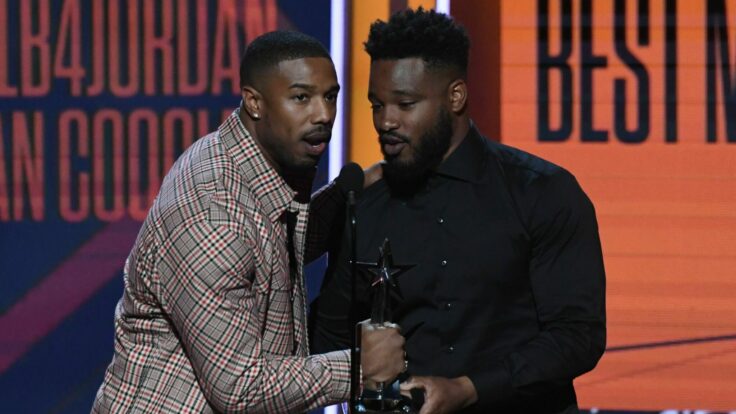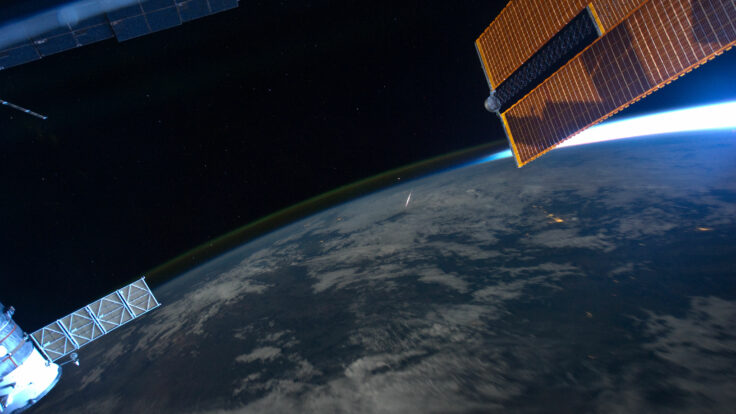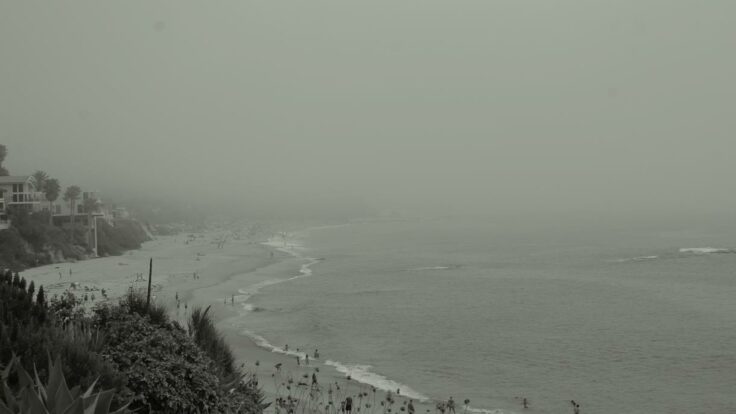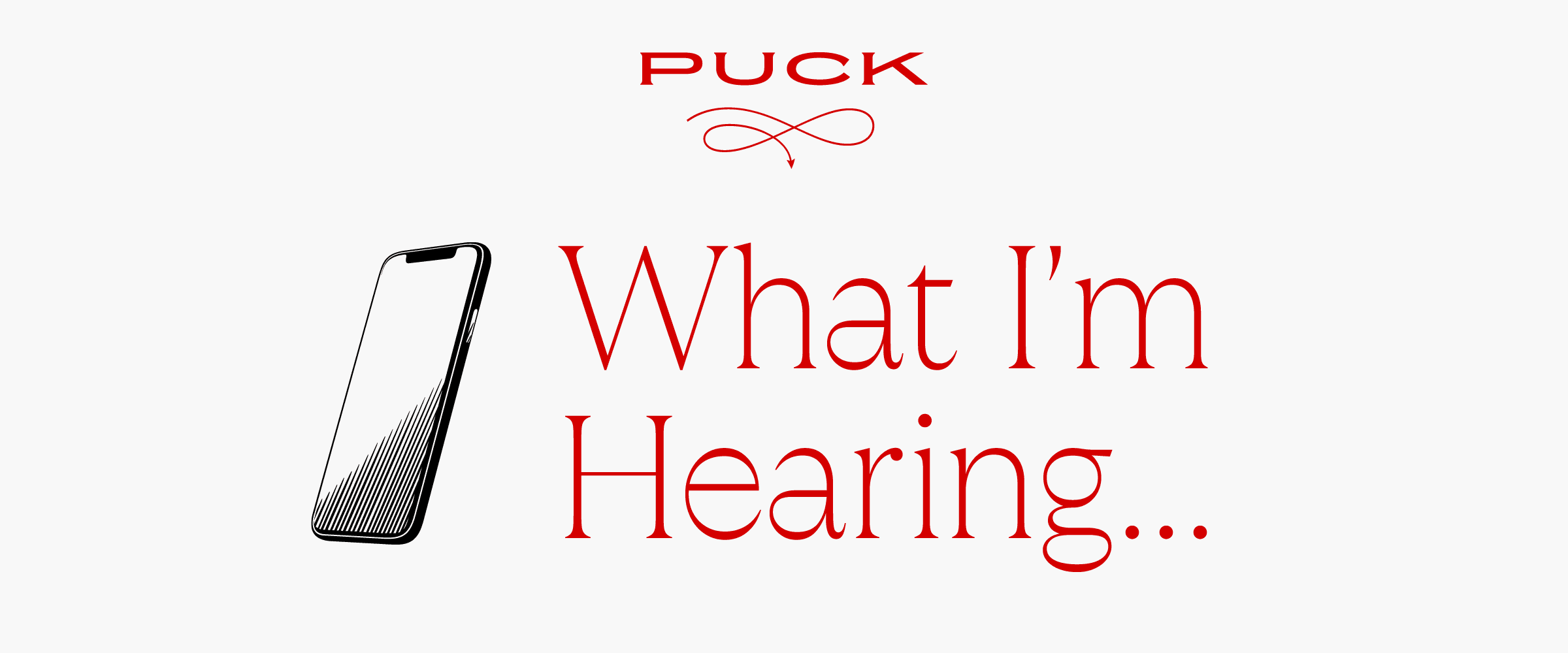 |
|
Welcome back to What I’m Hearing, home in Los Angeles for the entire month. Let’s get together! Tonight it’s the Joker: Folie à Deux blast radius (from both me and Scott Mendelson) and an insider’s look at Hollywood’s Jewish community one year after the October 7 attack on Israel.
Programming note: On The Town, Lucas Shaw and I debated Sony Pictures upon the ascension of its new C.E.O., Dylan Byers explained which anchors actually matter in TV news, and Kyle Buchanan answered some early questions about the Oscar race (Zoe in supporting?!). Subscribe here and here.
💫 Speaking of Lucas, he and I are chatting on Thursday morning at the Bloomberg Screentime conference. We go on at 9 a.m., followed by C.E.O. speakers and horror producer Jason Blum possibly murdering himself via spicy chicken wings on a live taping of Hot Ones. Get tickets here.
Got news or an idea for me? Just reply to this email or message me anonymously on Signal at 310-804-3198.
Discussed in this issue: Mike De Luca, Lucian Grainge, Nick Frenkel, Bryan Lourd, Brian Robbins, Ari Emanuel, Usher, Nicole Kidman, Todd Phillips, David Zaslav, Barry Jenkins, Haim Saban, Jason Bateman, Sherry Lansing, Aton Ben-Horin, Jeffrey Katzenberg, Pam Abdy, and… Paul Schrader’s assistant search.
But first…
|
| Who Won the Week: Ryan Murphy |
|
| Hard to argue with the king of gruesome murder TV, who has four new shows premiering this month—Monsters: The Lyle and Erik Menendez Story (Netflix), American Sports Story: Aaron Hernandez (FX), Doctor Odyssey (ABC), and Grotesquerie (FX). Monsters debuted to nearly 20 million views in a week on Netflix and surely nudged L.A. prosecutors to reopen the brothers’ case.
Honorable mention should go to Village Roadshow and Bron, the bankrupt financier, which Warner Bros. brought into the first Joker as financial partners because the project was considered so risky. But Warners refused to allow them (or anyone but its slate partner Domain) to get in on the ill-fated Joker: Folie à Deux, which will now end up saving them millions of dollars.
|
|
|
| A little more on the Joker blame game…
It’s easy to look at this weekend’s disastrous numbers for Joker: Folie à Deux—$37.8 million domestic, $77 million in 76 foreign markets, down more than half from Joker on a production budget nearly four times that of the first film—and point fingers at Mike De Luca and Pam Abdy, the film chairs at Warner Bros. In hindsight, this bleak and off-putting movie should not have been greenlit at a nearly $200 million budget.
But honestly, there’s a perfect storm of blame here, much of it created by modern Hollywood. First, there was an already headstrong filmmaker in Todd Phillips, emboldened even further by the fact that the first Joker broke many of the rules for comic book movies and became a surprise billion-dollar smash. I don’t believe Phillips agreed to a sequel only so he could make a purposely repulsive movie, even if that would have made the actual Joker proud. But why wouldn’t he believe he could take even more risks, challenge the audience further, and convince Warners to indulge his whims without questions or oversight? Joker 2 is a flex, not a self-sabotage.
After all, Phillips co-wrote the script, which specifically denies the audience the crimes and mayhem they love about the Joker, while adding awkward musical sequences supposedly imagined by Joaquin Phoenix in a dream. Phillips insisted on shooting in L.A., which ballooned the cost. Phillips refused to test-screen the movie, despite its risky elements. And it was Phillips who demanded to take the film to Venice, where the perplexed reactions were left to reverberate for six long weeks, tanking the marketing campaign and forcing Warners to scramble in panic. (One tracking expert who often works with WB told me Folie à Deux probably would have opened to at least $60 million if it had been kept hidden until the last minute and shown only to the hard-core DC fans and sycophantic press.)
But why not go for it? Everything worked out great the first time, Phillips argued to the studio, so why screw around with the unformulaic formula for success? If nothing else, as a career-long Warners filmmaker who had made billions for the studio, he deserved the benefit of his track record.
Second, who was gonna tell him no? There’s Warner Discovery C.E.O. David Zaslav, who is still learning the movie business and carries little to zero clout with filmmakers, especially at Phillips’ level. Zaslav hired De Luca and Abdy because of their relationships and their ability to get more movies made, and Joker 2 was teed up by the previous regime, just sitting there waiting for a greenlight. These days, if there is a sequel to be milked out of even the most lightning-strike of a hit, it’s considered fiscally irresponsible to not do it. (See Scott Mendelson’s analysis, below.) And by paying the talent far more up front than on the first movie, Warners would save itself from sending so much money out the door in success.
De Luca and Abdy declined to chat with me today, but their surrogates have been busy noting the reputational damage if one of their first acts at Warner Bros. had been to pass on a Joker sequel. Maybe. Phillips clearly believed that, as did Bryan Lourd at CAA, who was able to extract a big $12 million payday for Lady Gaga, whose deal was still open when De Luca and Abdy arrived. The duo sold Zaslav on a vision of bringing top talent to Warner Bros., and they have made good on that artist-friendly promise with financial largesse that has surprised (and angered) others at Warner Discovery, most of whom have seen their budgets cut significantly. Remember, this is the duo that gave up the copyright on Ryan Coogler’s next movie. The last thing De Luca and Abdy were gonna do is blow up the Todd Phillips relationship over money, especially since—despite the likely $150 million loss on this debacle—Warners would very much like Phillips’ next movie.
Is that an abdication of oversight? Again, maybe. I’d guess seven out of 10 studio executives would make Folie à Deux at that price with that script, probably putting their foot down to get Phillips to add more action. Whether they should let a filmmaker take that big of a swing with that much money is another issue. It’s kinda great that Phillips got $200 million of a debt-laden company’s money and did something so defiantly uncommercial with it. But it’s gotta be someone’s job to be the bad guy when the numbers no longer make sense, and Folie à Deux raises the question: At what budget would Mike and Pam have said no?
|
|
|
| “Ever since the wonderful The Hangover he’s always one step ahead of the audience never doing what they expect. Congratulations to Joker: Folie à Deux!” —Francis Ford Coppola, the Megalopolis filmmaker, in an amusingly timed Instagram post that appeared alongside headlines of Joker 2’s D Cinemascore and box office collapse.
Now for Scott Mendelson’s take on the box office lessons from ‘Folie à Deux’…
|
|
|
| Joker: Folie à Deux, Todd Phillips’ follow-up to his $335 million domestic and $1.1 billion worldwide grossing predecessor, opened to just $38 million in North America and $115 million globally. We can expect a domestic total of around $75 million and a global haul below $300 million. That would be down 77 percent in North America and at least 72 percent globally. The R-rated musical melodrama, which primarily takes place in an asylum wing and a courthouse, somehow cost a reported $190 million. (Its predecessor cost $63 million.) All of those numbers are very bad for Warner Bros.
Folie à Deux was never going to perform as well as the original. After premiering in Venice, the initial offering rode a monthlong wave of free media around Oscar odds for the film and Joaquin Phoenix, alongside sensationalist punditry and speculation about the film’s violent content, which helped turn it into metaphorical forbidden fruit. It also debuted during a fall 2019 season when many of the intended tentpole competition—Wonder Woman 1984, No Time to Die, and Sonic the Hedgehog—were delayed until 2020. Joker was the only game in town until Frozen II, just before Thanksgiving.
This time, Phillips and co-writer Scott Silver arrived to weak reviews and a lack of awards buzz during an October salted with other big horror movies (Terrifier 3 this weekend, Smile 2 next weekend). Worse, as suggested by the early Venice reviews, the sequel left everyone who might have cared out in the cold—Joker fans, Lady Gaga acolytes, musical theater nerds, etcetera. The movie joins the disturbing trend of hugely successful and well-liked blockbusters that spawn follow-ups which…
Continue reading online…
|
|
|
| This profile of the Smartless guys answers the question of who does their nine-figure deals. CAA, which already handles Jason Bateman and Will Arnett, represents the brand (albeit for a reduced commission, I’m told). [NY Times]
Disney’s slow-drip layoffs and consolidation aren’t helping morale. The most frequent question in my inbox after ABC Signature shuttered and the development teams of Hulu and ABC merged: What’s next on the chopping block? [Bloomberg]
Jennifer Weiner’s ode to Nicole Kidman and her strategy of making stories for women reminded me that Tom Cruise still has never made a film with a female director. [NY Times]
Coachella really needs to find a headliner so everyone’s assistant (and Leo DiCaprio) will have somewhere to go for spring break. [Bloomberg]
Dodgers star Shohei Ohtani has made a nearly $600 million impact this year on the city of Los Angeles. But can he lure back film shoots? [Huddle Up]
Will Scientology allow its Sea Org slaves to evacuate the Clearwater, Florida, HQ before Hurricane Milton arrives? [UndergroundBunker]
Paul Schrader is looking for an assistant. [Twitter/X]
A year ago, veteran music journalist Shirley Halperin penned a guest column for Puck asking why the industry was not speaking up to denounce the October 7 terrorist attack on Israel. Today, on the occasion of the anniversary, I asked her for an update…
|
 |
| The Sound of Silence, One Year Later |
| For many American Jews in the entertainment and music industries, the anniversary of the horrific October 7 terrorist attack in Israel is a stark reminder of their isolation in a culture that is terrified of speaking up, or speaking out, in support of the very community that built Hollywood as we know it. |
|
|
|
| A few weeks ago, I found myself at the home of acting coach Nancy Banks to hear an Israeli branding professional talk about a shared and growing dilemma: How to navigate the challenges of living openly as a Jew in Hollywood. Those in attendance came from different corners of entertainment and included Sharon Osbourne, who was apoplectic. “We’re all gonna be complacent and it will happen all over again,” she said, referring to the Hamas-led October 7, 2023, terrorist attack. “With the world today, where more and more people are coming out of that closet of hatred, we have to be vocal; we have to fight.”
Scanning the room, actress Jennifer Jason Leigh, Pizza Girl founder Caroline D’Amore, and musician Wendy Melvoin (of Prince’s Wendy & Lisa fame) nodded as a smattering of claps could be heard. We all wondered to ourselves: If Jews purportedly rule the media, how do we have the worst P.R. on Earth for 2,000 years running?
This gathering, like many in private homes all over Los Angeles (including those of ex-Paramount Pictures chief Sherry Lansing, 3 Arts’ Nick Frenkel, and CAA’s Deborah Marcus) wasn’t a secret—but it felt like it was. In the year since the Hamas attack and Israel’s overwhelming military responses in Gaza and Lebanon, the word “Zionism” has been weaponized, with supporters of Israel seen in some quarters as colonizers or genocidal maniacs. There’s a fear that wherever Jews congregate, protests and violence may follow. The guest list was carefully vetted, and the address revealed only 24 hours in advance. Everyone was on edge, with attendees expressing their fears over even minimal forms of expression, like wearing a Star of David necklace around Los Angeles.
It’s a surreal and perplexing experience. Almost exactly one year ago, I wrote a column for Puck criticizing the music industry’s silence in the wake of the October 7 attack. But the reality is that, while there are hundreds more people like me in music and other entertainment businesses, individually, Jews are feeling even more isolated and alone in the year since Hamas murdered 1,200 people in southern Israel and took more than 250 people hostage, 101 of whom remain in captivity. That the most heinous of the barbaric acts occurred at a dance music festival called Nova, where 370 people were killed and 44 kidnapped, made the pain that much more palpable—and the quiet more baffling.
You might think, after all, that record labels, live entertainment companies, and management firms—an industry built by Jewish immigrants escaping the evil of antisemitism before World War II—would be moved to action, particularly given that a music festival was among the main targets. But unlike terrorist attacks at music events of the recent past (2017 in Las Vegas, 2015 in Paris), it took days for the major labels to issue tepid, both-sides statements. Many Jewish staffers who took to social media to express their grief in the hours after the massacre—even those at the executive level and at least one label’s C.E.O.—were met with calls from top brass asking why they hadn’t cleared their posts in advance.
A year later, that astonishment has led to anger, disappointment, and even resentment. Business partnerships have eroded and friendships splintered as the divide between pro-Palestinian supporters and defenders of Israel has driven a wedge through communities, including…
Continue reading online…
|
|
|
| My Thursday column on CAA’s lawsuit against its Range defectors drew lots of responses from talent managers and agents (including a few at CAA). Some examples….
“Your story is spot-on. This is about spite and ego and deterrence. Like when Larry David opened his spite coffee shop. Range can argue that they left for a better life, and the clients left when their agents left. This is California, there are no entertainment-centric laws. Can five guys leave McDonald’s and form their own place? Of course they can. As for confidential info theft, I was at ICM when Ari [Emanuel] and Co. were caught at midnight taking files. Nothing happened. It’s all silly. The clients or the lawyer can demand copies of their files, and everything is online.” —An executive
“Trust me, we’re all embarrassed [by the lawsuit].” —A CAA agent
“Using an attorney does not shield personal managers from [Talent Agencies Act] problems. Just as attorneys can be dinged (see: Blancarte v. Solis) if there’s no licensed agent in the equation.” —A manager
[Ed. note: That’s correct, my discussion of lawyers as potential helpers was focused on situations where there’s no independent “procurement” of jobs.]
“Range is an agency, everyone knows it. They could call themselves Cirque du Soleil if they want but it wouldn’t make it true. Why aren’t you writing about their ridiculous spending and overhead?” —Another manager
“Thank you for highlighting the [issue of “phantom equity” at CAA]. It’s shameful how Bryan [Lourd] is treating people who have built this company. If you’re so secure about CAA being the greatest talent agency in the world, be confident enough to let us sell equity.” —Another CAA agent
“Someone finally had the balls to say it, and I assume you take a lot of arrows daily and might appreciate a note of appreciation.” —A former CAA employee
|
|
|
| A little movement on the Wicked vs. Gladiator II pre-Thanksgiving battle, with the musical taking a small lead in awareness on the latest Quorum early tracking chart. Though Moana 2, opening five days later, blows them both away in interest and awareness… |
|
|
Have a great week,
Matt |
|
|
|
| FOUR STORIES WE’RE TALKING ABOUT |
 |
| TV Comp Wars |
| Illuminating the anxieties of highly compensated news anchors. |
| DYLAN BYERS |
|
 |
|
 |
|
 |
|
|
|
|
|
 |
|
|
|
Need help? Review our FAQs
page or contact
us for assistance. For brand partnerships, email ads@puck.news.
|
|
You received this email because you signed up to receive emails from Puck, or as part of your Puck account associated with . To stop receiving this newsletter and/or manage all your email preferences, click here.
|
|
Puck is published by Heat Media LLC. 227 W 17th St New York, NY 10011.
|
|
|
|


